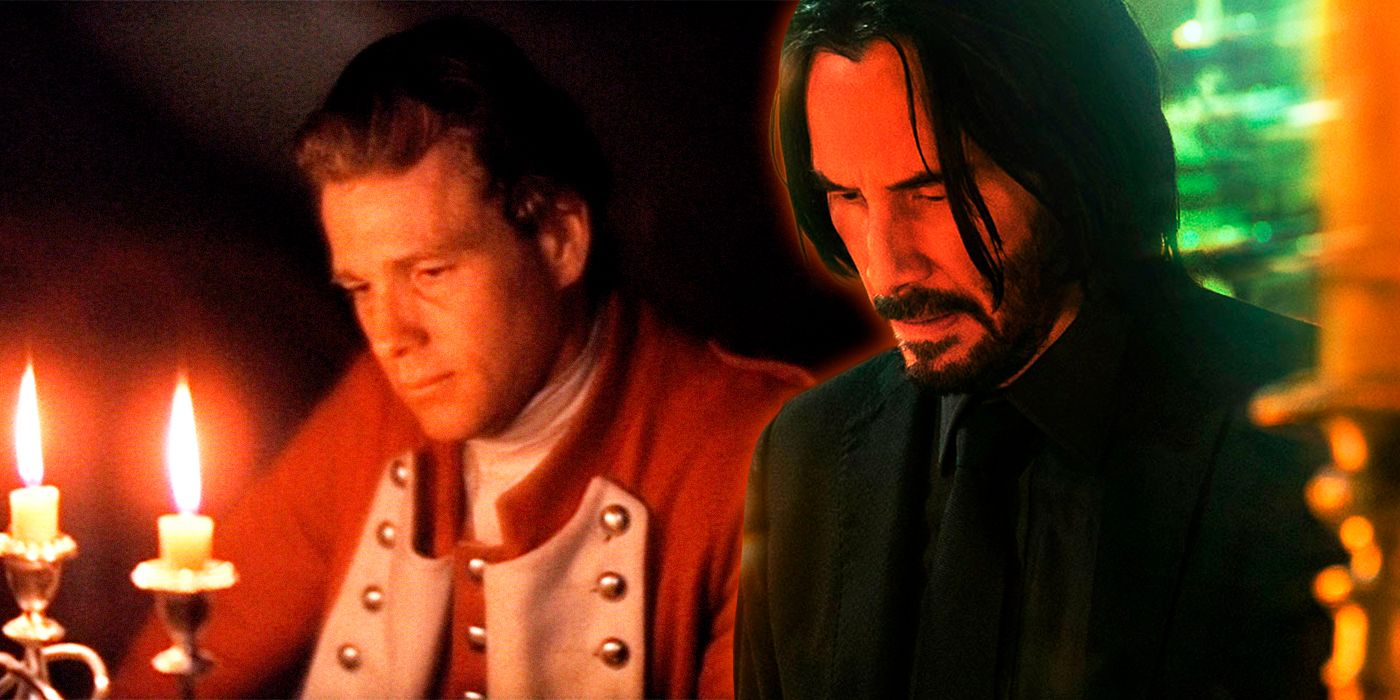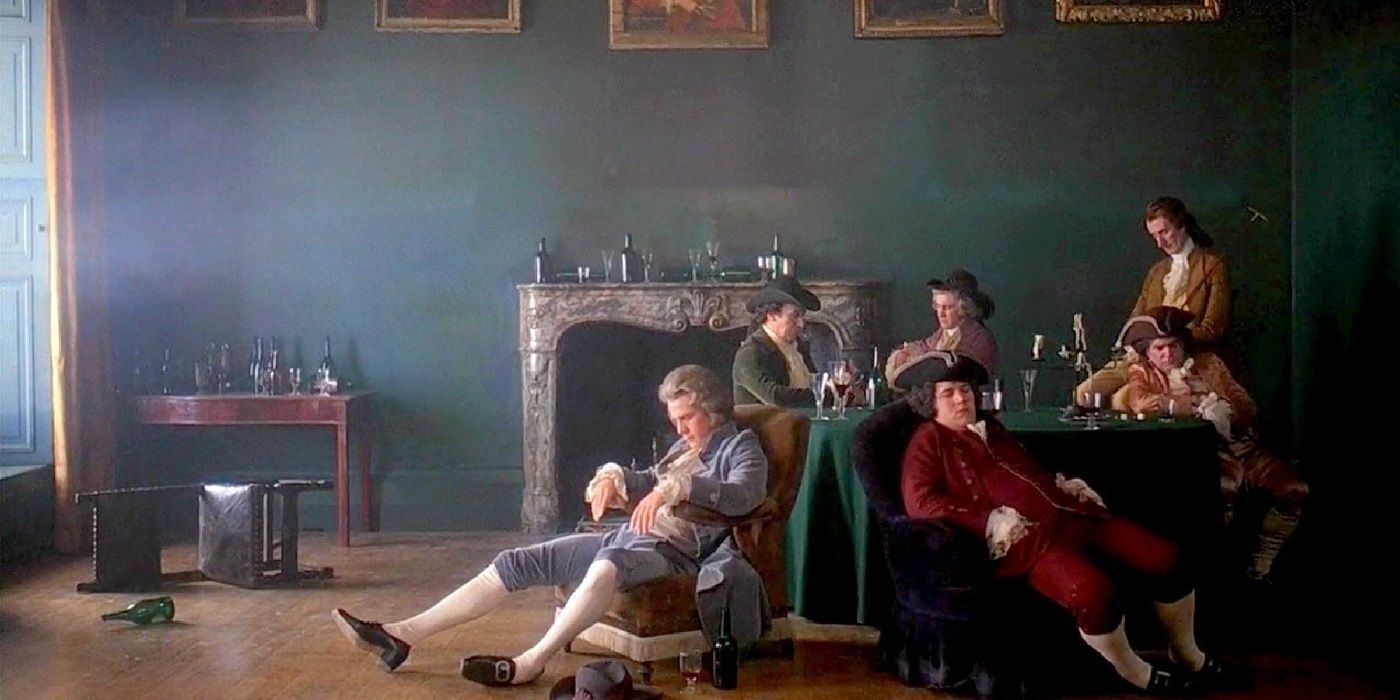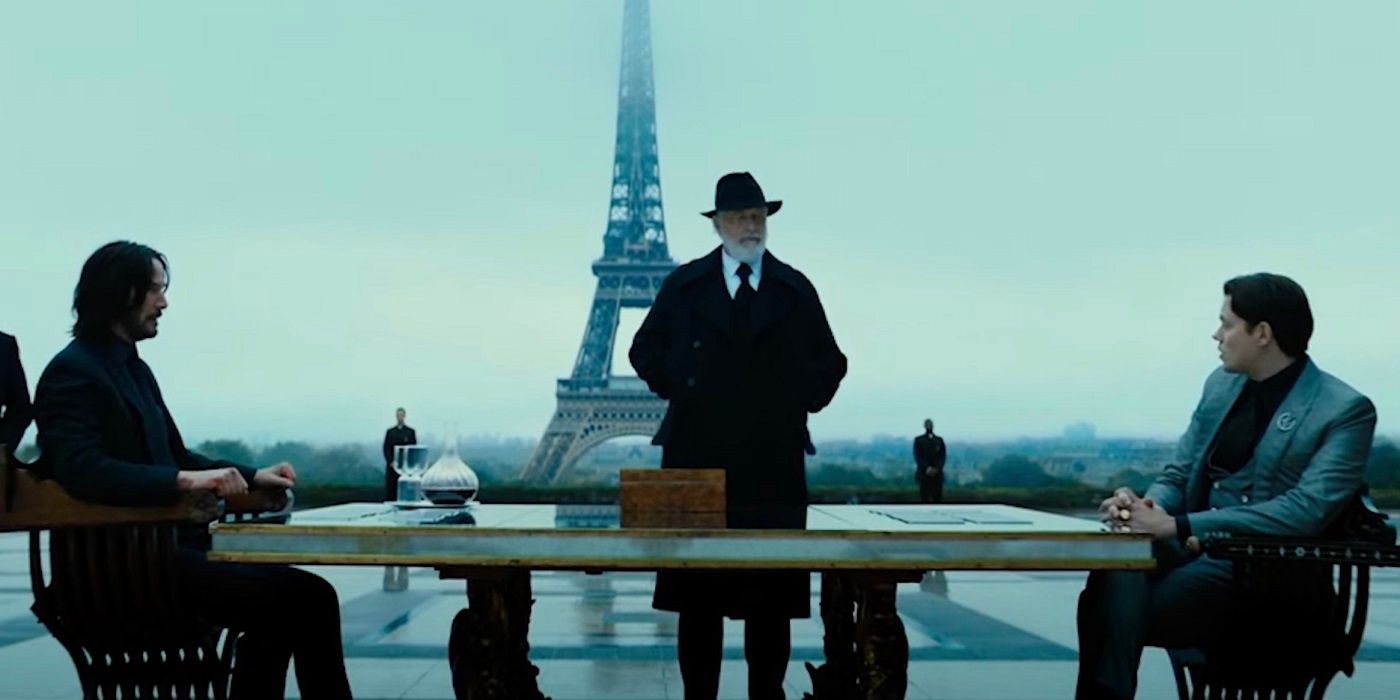The following contains spoilers for John Wick: Chapter 4, now in theaters.
John Wick: Chapter 4 wisely opts for a less-is-more approached to its finale. Having spent the previous 40-odd minutes showing John fight his way across all of Paris -- including a brutal ascent up the steps to the Sacré Coeur -- the film risks overkill by trying to top it. Instead, it goes for emotional intensity rather than wild acrobatics: pitting John in a traditional pistols-at-dawn duel against his reluctant adversary, Donnie Yen's Caine. The franchise has thrived as much in its moments of personal drama as dazzling set pieces, and the understated nature of the duel is the perfect counterpoint to the mayhem that preceded it.
The scene draws a great deal of inspiration from Barry Lyndon, Stanley Kubrick's 1975 historical drama about the rise and fall of an 18th Century scoundrel. The film also ends in a tension-laden duel, and indeed classic aristocratic duels play a significant part in the film's measured plot. John Wick 4 is a wildly different movie in almost every way, but Kubrick's influence is hard to miss. Both finales end up making the same basic statement.
Barry Lyndon Is Kubrick's Overlooked Classic
Barry Lyndon's title character is a low-born Irishman who finds success as a gambler and womanizer. He marries his way into nobility by seducing the Countess of Lyndon, who becomes his wife after her elderly first husband dies. His rise is accompanied by an equally dramatic fall, as he squanders his aristocratic resources and witnesses the death of his beloved son in a riding accident. His stepson, Lord Bullingdon, challenges him to a duel in the film's climax: wounding him and successfully banishing him from his family's life in the process.
Kubrick approached the film as a look at European class struggles set against the clashes of various continental powers in the 1700s. It was notable at the time for being shot entirely with natural lighting -- making it look exactly as it would during the period -- and Kubrick composed his shots in the manner of classical paintings. As with much of the director's work, it takes a dim view of humanity at large: particularly the aristocracy, whose hidebound rules and traditions are often the targets of his bone-dry wit.
That extends to the final duel: surrounded by pomposity and rules to cover up the ugly fact that at least one of the two combatants is likely going to be killed. The artifice of it all is laid bare when Lord Bullingdon nervously discharges his pistol before he's aimed. Lyndon, in perhaps the first charitable act he ever makes, discharges his own pistol into the ground in an effort to make peace. Bullingdon successfully shoots him in the leg on the second go, which gets the spendthrift away from his mother and the family bank accounts. It's hardly the stuff of high honor and romance.
John Wick 4 Uses a Different Duel to Make the Same Point
While Barry Lyndon is understated and intense, John Wick 4 is bombastic by design. But its world of underground assassins and the codes by which they live isn't all that different. The newer film revels in the excess of it, but it also uses the overkill as self-satire. The duel between John and Caine is laden with meaning, both between the two men and between John and the sinister Marquis, whom Caine is proxying for. The rules and traditions they're following are as hypocritical as those in Barry Lyndon, and yet they're still governing the lives of men in search of power.
Beyond that, John Wick 4 is all style and polish, while Kubrick was going for grounded and naturalistic. But both of them achieve very much the same thing. Both involve men trying to do the right thing and being confounded by the lethally absurd demands of those around them. Their respective duels respect the motives of their participants but treat everything else as a patent absurdity of the human condition. John Wick 4 is smart and literate enough to know the best place to turn to for inspiration and finds its own wrinkle in Kurbrick's unique statement.
John Wick: Chapter 4 is now playing in theaters.



